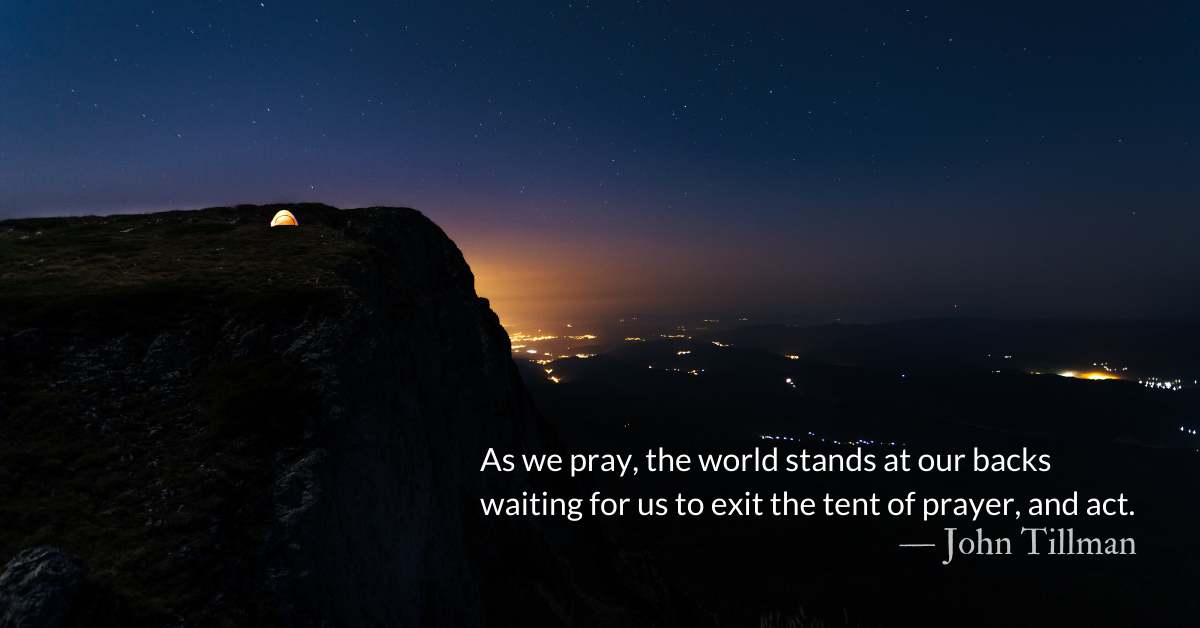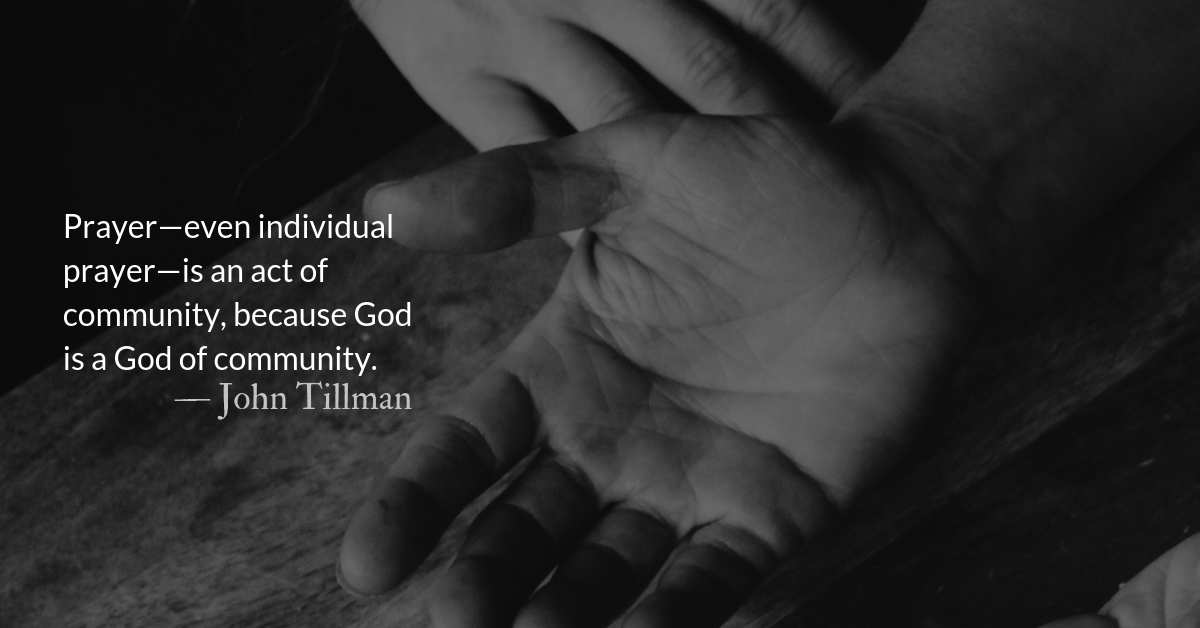Links for today’s readings:
Read: Nehemiah 5 Listen: (3:29)
Read: Revelation 14 Listen: (3:51)
Scripture Focus: Revelation 14.1-3
1 Then I looked, and there before me was the Lamb, standing on Mount Zion, and with him 144,000 who had his name and his Father’s name written on their foreheads. 2 And I heard a sound from heaven like the roar of rushing waters and like a loud peal of thunder. The sound I heard was like that of harpists playing their harps. 3 And they sang a new song before the throne and before the four living creatures and the elders. No one could learn the song except the 144,000 who had been redeemed from the earth.
Psalm 42.8
8 By day the Lord directs his love,
at night his song is with me—
a prayer to the God of my life.
1 John 4.8
8 Whoever does not love does not know God, because God is love.
“When he awoke, the song was there.
Its melody beckoned and begged him to sing it…” — The Singer, by Calvin Miller
Reflection: Sing to the Beasts — Love of Advent
By John Tillman
Throughout the Advent story, angels, shepherds, and prophets express themselves poetically. The scriptures, strummed by the Spirit, vibrate into song.
The scriptures, especially the gospels, were not written by documentarians but by artists.
The gospel writers did not merely take Jesus’ driver’s license photo or mugshot to record his identity. They didn’t simply take evidence photos of his birth, deeds, death, or resurrection. They painted portraits of each moment of his life that are more true than photographs and wrote songs that are more real than transcripts of speeches.
Songs go beyond entertainment in scripture. Songs are lessons, prophecies, sermons, memory aids, and weapons of the truth. John’s Revelation looks far into the future to see a choir of chosen followers who will stand with the Lamb and learn to sing a new song. This song pierces the universe, proclaiming the truth and defeating the beast. (Revelation 15.2)
We have beasts to be defeated around us. Beasts of lies. Beasts of violence. Beasts of abuse. Beasts of despair. Beasts of doubt. We don’t defeat their growls with our own. Instead of growling back at beasts, we must sing the song of the gospel. Music helps defeat the Beast of Revelation. The beasts around us can be tamed and transformed by the gospel’s tune. We must keep singing the tune of God’s love.
Some may scoff at the idea of singing at beasts. They think singing of God’s love is weak, diminishing, or enabling, or that it ignores reality.
Singing of God’s love is not weakness because God’s love demonstrates his strength. Singing of God’s love does not diminish him because God’s love makes him glorious. Singing of God’s love is not enabling sin because God’s loving-kindness pulls us toward holiness. Singing of God’s love is not ignoring reality because God’s love is the central reality upon which the universe spins.
God’s love is his distinguishing characteristic. It should be ours. Don’t allow the world’s beastliness to bristle your brow. Don’t allow the world’s brutality to make you a brute. Don’t allow the din of battle to cause you to trade your musical instrument for an instrument of hate or violence. If we are discipled by beastly methods, instead of fighting beasts, we become them.
Sing to beasts about their defeat.
Sing to liars about the truth.
Sing to haters about God’s love.
Sing.
Music: “How Can I Keep from Singing?” — Author unknown, recording by Enya.
Divine Hours Prayer: The Morning Psalm
When the Lord restored the fortunes of Zion, then were we like those who dream.
Then was our mouth filled with laughter, and our tongue with shouts of joy.
Then they said among the nations, “the Lord had done great things for them.”
The Lord has done great things for us, and we are glad indeed. Restore our fortunes, O Lord, like the watercourses of the Negev.
Those who sowed with tears will reap with songs of joy.
Those who go out weeping, carrying the seed, will come again with joy, shouldering their sheaves. — Psalm 126
– From The Divine Hours: Prayers for Autumn and Wintertime by Phyllis Tickle.
Read more about Truth and Love — Love of Advent
Make us instruments of your peace…prophets of your hope…singers of your love…founts of your joy.
Support our Work
With donations similar to the cost of monthly streaming services, you can support a stream of ad-free biblical content throughout the year.





